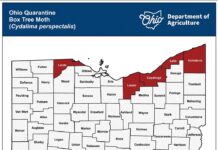WASHINGTON — The U.S. Environmental Protection Agency recently issued a proposed rule under the Renewable Fuel Standards (RFS) program that would set the minimum amount of renewable fuels that must be supplied to the market in calendar year 2019, as well as the biomass-based diesel volume standard for calendar year 2020.
Conventional renewable fuel volumes, primarily met by corn ethanol, would be maintained at the implied 15-billion gallon target set by Congress for 2019.
The advanced biofuel standard for 2019 would be increased by almost 600 million gallons over the 2018 standard. And the biomass-based diesel standard for 2020 would be increased by 330 million gallons as compared to the standard for 2019.
“Issuing the proposed rule on time meets Congress’s statutory deadlines … and provides regulatory certainty to all impacted stakeholders,” said EPA Administrator Scott Pruitt.
Farmer response
Farm groups said they were pleased to see EPA set a volume in line with congressional intent. However, some were hoping the EPA would also re-allocate the 1.6 billion gallons of renewable fuel that EPA waived from the previous two years.
“EPA had an opportunity to propose a remedy for the 1.6 billion gallons the agency has retroactively waived from the 2016 and 2017 volume requirements over the past year,” said North Dakota farmer Kevin Skunes, who is president of the National Corn Growers Association.
“NCGA believes that if EPA is going to grant retroactive waivers to cut volume requirements for certain refineries, then EPA must also reallocate those gallons to others, so the obligation to blend renewable fuels is not lost,” Skunes continued.
Skunes said that waiving the blending requirements “reduces the clean air benefits” of the RFS, and costs consumers choice and money at the pump, “particularly today when ethanol is considerably less expensive than gasoline.”
Different views
The oil and gas industry has long argued that the RFS is outdated and makes fuel more costly to consumers.
“The RFS is a backward-looking policy that doesn’t reflect today’s energy market realities of strong domestic energy production,” according to a statement by the American Petroleum Institute. “Furthermore, by increasing biomass-diesel and the overall biofuels volumes the government is putting its thumb on the scale, picking winners and losers. The biggest losers from this biomass-diesel proposal could be consumers, as once again this proposal threatens to breach the blend-wall.”
The American Soybean Association said it was pleased with the EPA announcement, which calls for biomass-based diesel volumes within the Renewable Fuel Standard of for 2.43 billion gallons for 2020, representing a 300 million gallon increase over the 2019 levels.
ASA President John Heisdorffer, a soybean producer from Keota, Iowa, said the RFS increase “supports a valuable, growing market for soybean oil. We have an increased capacity on the domestic market to meet the demand for renewable fuels blended into the nation’s fuel supply.”
Granting waivers
Like the corn association, however, he said that granting waivers continues to hurt the program and its potential.
“The waived volumes need to be reallocated to ensure the RFS remains whole and that proposed future increases are meaningful,” Heisdorffer said. “The biodiesel industry has the potential to support agriculture by creating jobs, diversifying fuel sources, and reducing America’s dependence on foreign oil.”










